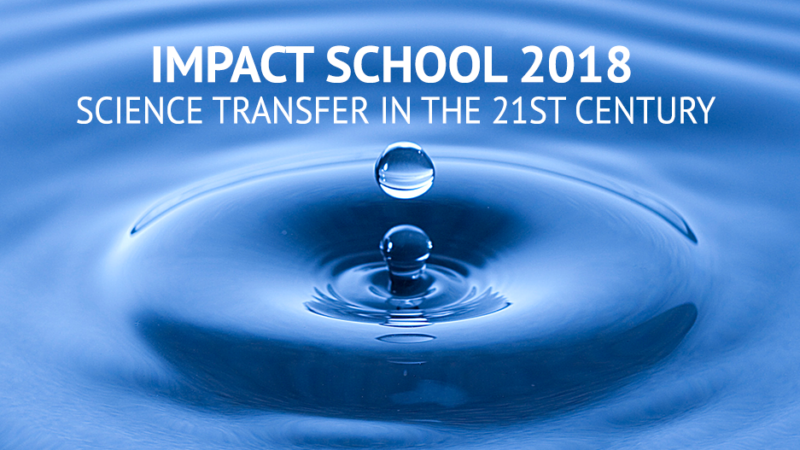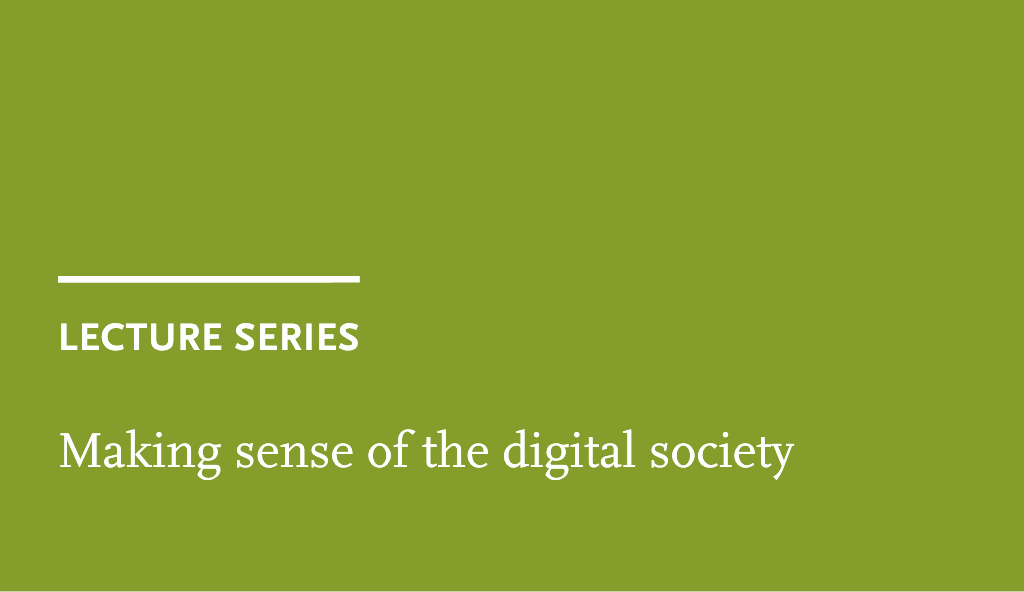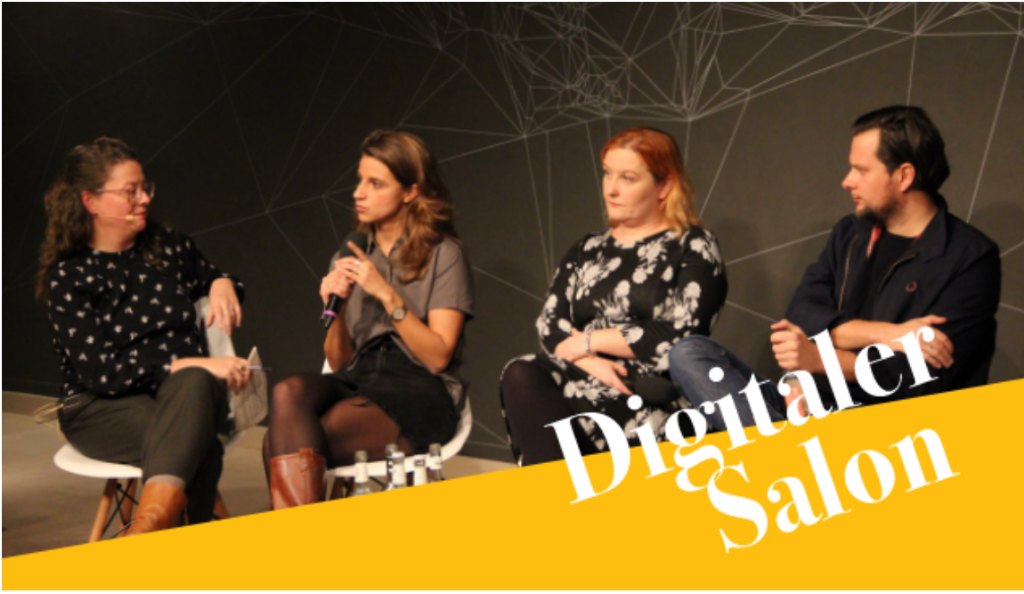
Impact School 2018: Science Transfer in the 21st Century
There is a pressing need for informed expertise from virtually all fields of academic research (e.g., with regards to matters of climate change, innovation, migration). Policy makers and research funders therefore place the question of societal impact at the top of their agenda. However, knowledge transfer, as the skills and knowledge necessary to make research accessible beyond the academic sphere, often plays only a minor role in university curricula and the daily routines of research institutes. This three-day training programme is tailored to up-and-coming researchers who want to learn the skills necessary to maximize the impact of their research beyond academia. The sessions will be held by renowned experts in their respective fields and cover the three dimensions of scholarly impact: economic, political, and media impact.
Impact School 2018: Science Transfer in the 21st Century
September 17th – 19th | HIIG | Französische Straße 9 | 10117 Berlin
Participants
The training is aimed at up-and-coming researchers from all disciplines (e.g., PhD students, postdocs, junior faculty). In the course of the training, participants will understand concepts and tools of science impact as well as science transfer and learn how to apply them to their own research.
Call for Applications
Participants are asked to apply with a letter of interest, giving a brief overview of one of their own research topics and how the training could increase the societal impact of their research (approx. 500 words). The training is limited to 25 participants.
Participation is free. Participants can apply for a travel allowance of up to 200 € (depending on the expenditures that will be actually incurred). In that case, please include a statement and a short explanation of the costs to your application.
Applications should be sent to Susanne Melchior (s.melchior@zbw.eu) by August 10th, 2018 with the subject line “Impact School 2018”.
Training Concept
The training is divided into three modules, representing three different impact dimensions: (1) media & society, (2) politics, and (3) business. Societal and media impact includes interaction between researchers and actors from civil society, like scientific journalism and citizen science. Political impact focuses on how research can support informed political decision-making. Business impact is generated when scientific insights are converted into business models, for example, in spin-off companies or patents. Each day of the three-day training focuses on one of these impact dimensions.
Three different training formats are used: Practice sessions (P) involve practitioner experiences and active discussions between experts and practitioners (2 hrs). Theory sessions (T) are upfront and input-oriented (2hrs). Skill sessions (S) are designed as interactive workshops in which participants learn skills relevant for the dissemination of their research (4 hrs).
A schedule will be updated shortly.
Organizers
The impact school of the Leibniz Research Alliance Science 2.0 is organised by Impact Distillery (mStats DS GmbH), the German Institute for Economic Research (DIW), the ZBW – Leibniz Information Centre for Economics and the Alexander von Humboldt Institute for Internet and Society.
Dr. Marcel Hebing, Impact Distillery (mStats DS GmbH), Berlin
Dr. Benedikt Fecher, Alexander von Humboldt Institut für Internet und Gesellschaft, Berlin
Nataliia Sokolovska, Alexander von Humboldt Institut für Internet und Gesellschaft, Berlin
Dr. Guido Scherp, ZBW Leibniz Information Centre for Economics – German National Library of Economics, Kiel
Susanne Melchior, ZBW Leibniz Information Centre for Economics – German National Library of Economics, Kiel
Prof. Dr. Isabella Peters, ZBW Leibniz Information Centre for Economics – German National Library of Economics & Kiel University, Kiel

DIGITAL SOCIETY LECTURES
This high-profile lecture series thrives to develop a European perspective on the processes of transformation that our societies are currently undergoing.
DIGITALER SALON
Once a month we publicly discuss the impact of digitalisation on the society. Therefore we invite special guests and engage in a dialogue with the audience.
NEWSLETTER
Be the first to learn about our new events and exciting research results.

